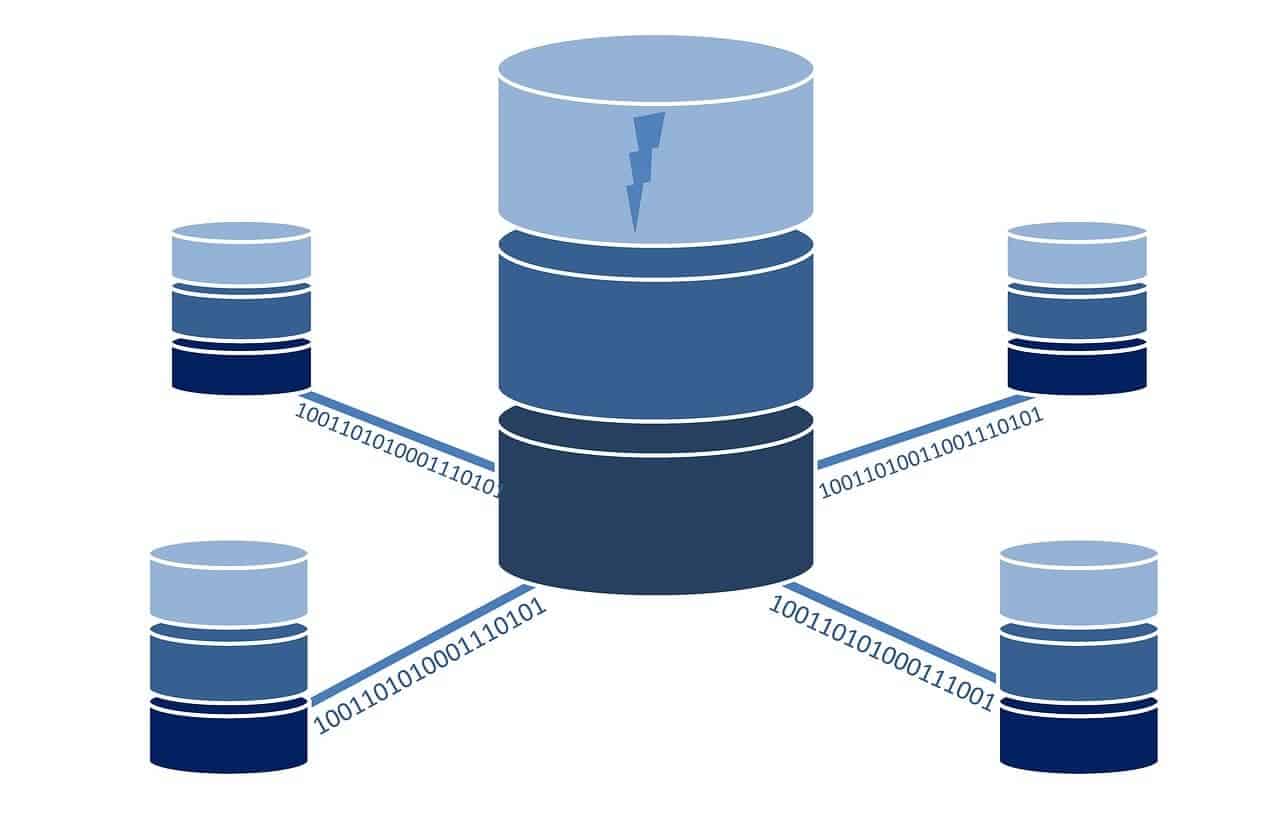SQL DBA is a great career choice for those seeking a career in database administration. As the demand for skilled database administrators continues to grow, more organizations seek qualified DBAs to manage their data systems. This article will explore what it takes to become a successful SQL DBA, the various industries that employ them, and why it is an excellent career choice.
What is a SQL DBA?
A SQL DBA (Database Administrator) specializes in managing databases using the Structured Query Language (SQL). They are responsible for designing databases, ensuring data integrity, monitoring performance, maintaining security, troubleshooting problems, and more.
What is the Role of a Database Administrator?
The role of a Database Administrator (DBA) can vary greatly depending on the organization they work for. Generally speaking, their primary job duties include:
- Designing and implementing databases.
- Creating backup plans.
- Monitoring performance.
- Installing software updates.
- Troubleshooting issues.
- Resolving user conflicts.
- Providing training and support.
- Ensuring data security.
- Developing new database applications.
What Skills Does a Database Administrator Need?
To succeed as a Database Administrator, you must possess specific technical skills such as knowledge of query languages like SQL Server or Oracle and NoSQL databases like MongoDB or Cassandra. You should also have experience with automation tools like Puppet or Chef and be familiar with database management systems like MySQL or PostgreSQL. Additionally, you should have good problem-solving skills and be able to work independently or in teams.
What is the Difference Between a Database Developer and a SQL DBA?
A Database Developer designs databases while a SQL DBA manages them. A developer designs efficient databases that meet specific requirements, while DBAs focus on maintaining existing databases by monitoring performance, troubleshooting issues, optimizing queries, ensuring data integrity, etc. Generally speaking, developers focus more on building applications, while DBAs focus on keeping existing ones running smoothly.
Is SQL DBA A Good Career Choice?
SQL DBAs enjoy good pay and job security due to their expertise in this field. According to Glassdoor’s salary estimate for Database Administrators in the United States (as of August 2020), the average annual base salary ranges from $81k – $121k per year, depending on location and experience level. Furthermore, some organizations offer bonus payouts based on performance which can increase your earnings significantly over time. Additionally, there are various certifications available for DBAs which can boost your earning potential even further if you choose to pursue them.
How Much Does a SQL DBA Make?
According to Glassdoor’s salary estimate for Database Administrators in the United States (as of August 2020), the average annual base salary ranges from $81k – $121k per year, depending on location and experience level. Furthermore, some organizations offer bonus payouts based on performance which can increase your earnings significantly over time. Additionally, there are various certifications available for DBAs which can boost your earning potential even further if you choose to pursue them.
Are There Any Special Certifications for DBAs?
Yes! Several certifications are specifically designed for database administrators, such as Microsoft Certified Solutions Associate (MCSA) certification or Oracle Certified Professional (OCP) certification, which demonstrate proficiency in administering specific types of databases, such as Microsoft’s SQL Server or Oracle’s database, respectively. These certifications can help boost your credentials when applying for jobs since employers often look favorably upon certified professionals when hiring.
What Education Do You Need To Become A Database Administrator?
Most employers require at least a bachelor’s degree in computer science or a related field when hiring DBAs. Still, some may accept candidates with an associate’s degree or equivalent experience instead. In addition to formal education, most employers prefer candidates with at least one year of relevant experience working with relational databases such as Microsoft’s SQL Server, Oracle, MySQL, etc. Stay current with database technology trends to remain competitive when looking for jobs.
Here are some helpful Frequently asked questions and answers:
Q: Is SQL DBA a promising career?
A: Yes, being a SQL DBA is a great career. It’s a field of database administration that can be lucrative and potentially rewarding. As a SQL Server Database Administrator, you will help an organization’s databases run smoothly and efficiently by managing, monitoring, and troubleshooting any issues. You’ll also be responsible for setting up and maintaining the security of the databases.
Q: What skills are necessary to become a successful SQL Server DBA?
A: To become a successful SQL Server DBA, you should have strong technical knowledge in database administration, including database design and architecture, data modeling, performance tuning, scripting languages such as T-SQL, database backup/restore strategies, automation techniques, and more. Additionally, you should have experience with popular database platforms such as Microsoft SQL Server or Oracle Database.
Q: How do I find job opportunities as a Senior DBA?
A: There are many ways to find job opportunities as a Senior DBA. You can search online for postings from employers looking for experienced DBAs or attend networking events related to your field. Additionally, you can reach out to recruiters who specialize in placing professionals in roles related to database administration.
Q: What is the difference between a Database Developer vs Database Architect?
A: A Database Developer is responsible for developing applications that access database data. They may also be responsible for creating new databases or modifying existing ones. A Database Architect is responsible for designing the overall structure of an organization’s databases. It includes defining data models based on business requirements and creating physical designs that optimize performance.
Q: What types of alerts do DBAs need to monitor?
A: DBAs must monitor various alerts depending on their organization’s needs. These can include alerts when certain thresholds are exceeded (such as CPU utilization), when backups fail or complete successfully, when disk space runs low or becomes full, when specific events occur within the system (such as deadlocks), etc.
Q: How can I automate tasks using SQL Server?
A: Automating tasks using SQL Server can be done using various methods such as stored procedures or scripts written in T-SQL language. Several tools allow you to automate tasks without writing code, such as PowerShell cmdlets or third-party software like Redgate’s SQL Automation Pack.
Q: What types of skillsets do good DBAs possess?
A: Good DBAs possess both technical and non-technical skill sets. On the technical side, they should have strong knowledge of specific database platforms such as Microsoft SQL Server or Oracle Database; experience with scripting languages such as T-SQL; understanding of performance tuning techniques; knowledge of backup/restore strategies; experience with automation techniques, etc. On the non-technical side, they should have excellent problem-solving skills; the ability to make data-driven decisions; communication skills; etc.
Q: What is the average salary for someone working in this field?
A: The average salary for someone in this field varies greatly depending on location and experience level. Still, according to Glassdoor, the median salary for an experienced Senior DBA is $112k per year in the United States.
Q : Do I need a degree in computer science or a related field?
A : While it isn’t required, having some degree, especially one related to computer science, information systems, mathematics, engineering, or another related field, would give you an edge over other applicants. It also helps if you have certifications related to your chosen platform ( e . g . Microsoft Certified Solutions Expert ).
Q: What does it take to become successful at this job?
A: Becoming successful at this job requires dedication, hard work, attention to detail, problem-solving skills, and an understanding of both the nuts and bolts of how databases work, as well as how technology fits into an organization s larger goals. It also helps if you have experience with multiple database platforms and programming languages so that you can quickly adapt when faced with different challenges.
Q: Are there any other popular databases besides Microsoft SQL Server?
A: Yes, there are many popular databases besides Microsoft SQL Server, such as MySQL, Oracle Database, PostgreSQL, MongoDB, Firebase Realtime Database, CassandraDB, Redis Cache, etc. Each has its strengths and weaknesses, so it’s essential to understand each before deciding which best suits your needs.
Q: What Is The Difference Between Database Administration And Computer Science Or Query Language Development?
A: The main difference between these two fields lies in their focus: computer science focuses primarily on developing software applications, while query language development focuses mainly on writing code that interacts with databases. While both fields involve working with computers, they require different skills: computer scientists need strong programming abilities, while query language developers need deep knowledge of relational databases. Computer scientists focus more on theoretical concepts, while query language developers must be adept at practical applications.















